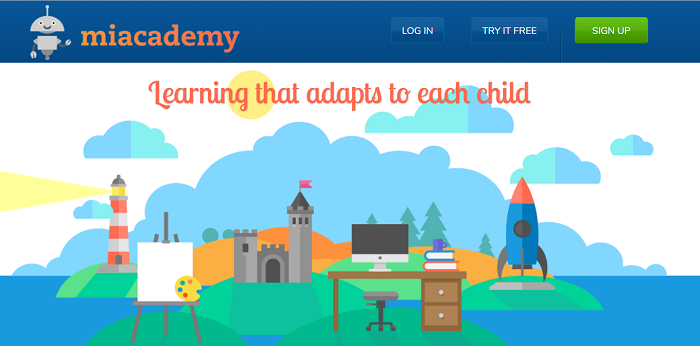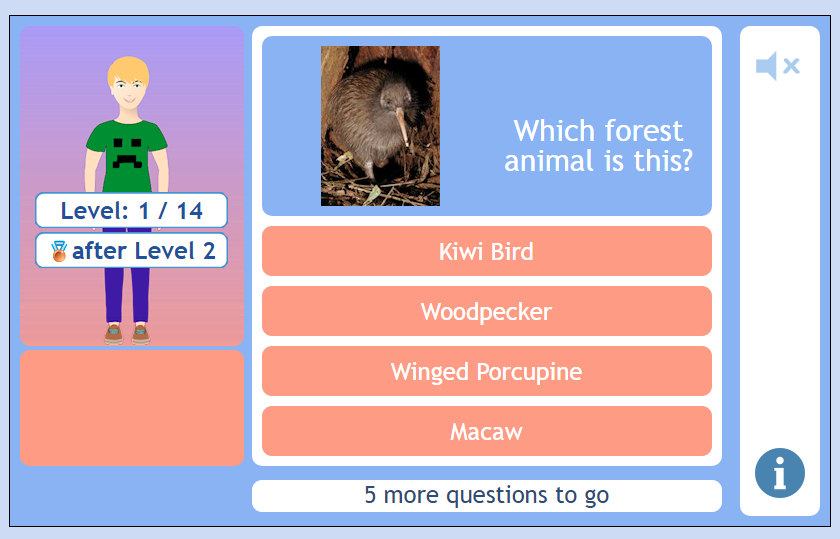
Online Learning Resources and Digital Tools
There are so many online learning resources that choosing the right one can feel overwhelming. The GRPS Family and Community Engagement team compiled this list of recommended educational apps, online games and TV shows to get you started. Enjoy!
Ages 6 and under
- Elmo Loves 123s: Teaches children basic math skills, such as counting and simple addition and subtraction. Enjoy Sesame Street videos, puzzles and coloring pages as Elmo introduces your child to math concepts.
- PBS KIDS Games: Games based on popular PBS KIDS shows. Your kids can learn math skills with Peg + Cat or go on a space adventure with Ready, Jet Go!
- Fish School: Colorful fish introduce your child to reading and language arts. Your preschooler can learn letters, numbers, shapes and colors with this fun under-the-sea world.

- Sight Words Adventure: Help your child to memorize, read and write up to 320 sight words. This game helps your child practice the cognitive skills necessary to remember sight words, like attention, memorization and listening skills.
- Habitat the Game: Teach your child to care for the environment with this fun game. Your child can adopt a virtual polar bear and keep it healthy by completing real-world actions, such as turning off lights or shutting off faucets.
- A Parcel of Courage: This app tells the story of a family who helps their grandmother overcome her fear of flying. It’s an interactive book that combines storytelling with problem-solving. It helps with eye-hand coordination, as well as memory and listening skills.
- Winky Think Logic Puzzles: Your child will stay engaged for hours with STEM activities. This game has over 180 logic puzzles, ranging from simple matching games to complex games, such as obstacles and mazes.
- SkyView: Open the app and point your device at the stars. This app will identify the stars and constellations.
- PBSKids.org: Features PBS characters that teach preschool children academic skills, social skills and emotional development.
- ABCmouse.com: A comprehensive learning site that offers reading, math and coloring activities for kids ages two through seven.
- StoryBots: This fun and charming educational series follows the StoryBots, who search for an answer to a “big question.”
- Super Why!: Four kids turn into superheroes before jumping into a book and becoming part of the story to solve a problem.
- Dinosaur Train: The show encourages kids to apply scientific thinking as they discover and embrace natural science topics.
Ages 7 to 10
- The 38 Times Tables Challenge: By concentrating on these 38 times tables, your child spends time learning the most difficult ones.
- Moji Multi: This app encourages daily times tables practice using a variety of approaches.
- Dyslexia Gold: This app improves reading fluency, speed and comprehension by addressing the underlying problems that cause reading difficulty.
- StudyGe: Become a master at identifying countries, capitals and flags.
- Find Them All – Dinosaur World: This app comes with additional extensions. Children can learn about dinosaurs and other prehistoric animals through interactive games, puzzles and quizzes.
- Crazy Gears: A mechanical learning game where kids can learn about cogwheels by solving mechanical puzzle games.
- Thinkrolls 2: A logic game for kids. Kids roll the funny characters through a maze, using various tools and strategies to get around the obstacles.
- ABCya.com: An exceptional website that covers reading, math and critical thinking skills.
- National Geographic Kids: This website provides top-quality information on topics like animals, science, space and world cultures.
- Scholastic: This multinational publication company helps children find books as well as literary resources. Scholastic News is a great extension that promotes non-fiction reading skills as well.
- Math Playground: It helps children have fun while practicing a wide variety of math topics.
- Odd Squad: This show features young detectives who can only solve a problem by relating it to math concepts.
- Wild Kratts: Kids are introduced to a wide variety of animal species and science concepts.
- Modern Marvels: A show that teaches children how innovations are made and also outlines a few amazing feats of engineering.
Ages 11 to 13
- Marble Math: Kids sharpen their math skills while working through fun mazes and puzzles. The problems are based on common core standards.
- Sushi Monster: A fun, quirky math game to practice math facts.
- Scribble Press: Your child gets the chance to become an author and illustrator with this app. It includes a collection of story prompts or a blank book template for those who want to create their own.
- Duolingo: Help your kids learn over 25 languages! It’s free to download and use, and functions as a game.

- Dino Walk: This app is filled with research kids can use for their homework or science projects.
- Box Island: A coding app that lets kids collect stars and move them throughout the islands while learning the basics of coding.
- Inventioneers: Your child needs to invent crazy things to meet the challenges of each level. It teaches physics, engineering and other skills.
- Brain POP: Kindergarten through eighth-grade students can learn math through engaging animated videos, games and quizzes.
- NASA Space Place: A colorful and fun website that encourages students to explore space.
- Annedroids: A tween girl loves to solve problems using her expertise in computer programming and engineering.
- MythBusters: The two hosts bust science myths and prove whether they’re true or false.
- Design Squad: A great show for children who want to learn engineering and math skills.
Miacademy K–8 Online Learning

Miacademy is an online learning platform widely used by home-schoolers, and increasingly by charter and public school students. In addition to a core curriculum complete with lessons, activities, practice opportunities and assessment, Miacademy’s e-learning site also provides optional, fully moderated social interaction between students. Miacademy students can interact in simulations through creating online artwork, and by practicing what they’ve learned through competitive activities.

